Home - News > Industry NewsIndustry News
Stainless steel pipe defect detection method and significance
Update:2024-07-10 View(s):506 Keywords :Stainless steel pipe defect, Stainless steel pipe detection, Stainless steel pipe significance
Stainless steel pipes play an important role in industrial production and construction, and detecting their defects is particularly important. The quality of stainless steel pipes is directly related to the safety and reliability of the project. Therefore, understanding how to detect the defects of stainless steel pipes is crucial to ensuring the quality of the project.
For the defect detection of stainless steel pipes, the following methods can usually be used:
1. Visual inspection: This is the simplest and most direct method. Observe the surface of the pipe with the naked eye to see if there are cracks, pores, slag inclusions, and other defects. Although simple, visual inspection is very effective for discovering surface defects.
2. Eddy current detection: Eddy current detection uses an induction coil to generate an alternating magnetic field. When the magnetic field senses the defects in the stainless steel pipe, eddy currents are generated. By detecting the changes in the eddy currents, it is determined whether the pipe has defects. This method is suitable for detecting surface and near-surface defects.
3. Ultrasonic flaw detection: Ultrasonic flaw detection is a method of detecting defects by using the laws of ultrasonic propagation and reflection in materials. By scanning the stainless steel pipe with an ultrasonic probe, various defects inside the pipe can be found, such as pores, slag inclusions, cracks, etc.
4. Radiographic detection: Radiographic detection is a method of detecting defects by using the difference in the transmission and absorption of rays in the material. This method can detect various internal and surface defects in stainless steel pipes, which is particularly important for pipes with high sealing requirements.
Each of the above methods has its advantages and disadvantages, and the appropriate method can be selected for detection according to the specific situation. The defect detection of stainless steel pipes is crucial to ensuring the quality of the project. It can help avoid safety hazards caused by pipe defects and ensure the reliability and durability of the project. Therefore, sufficient attention should be paid to the defect detection of stainless steel pipes, and appropriate detection methods should be selected in combination with actual conditions to ensure that the quality of the pipes meets the requirements and provides strong guarantees for the safe and reliable operation of the project.
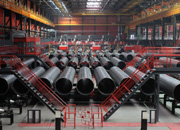 Threeway Steel is known as a professional supplier engaged in manufacturing and distributing a wide range of steel pipe, and our headquarter located the central part of China – Hunan and six associated factories throughout China.
Threeway Steel is known as a professional supplier engaged in manufacturing and distributing a wide range of steel pipe, and our headquarter located the central part of China – Hunan and six associated factories throughout China.
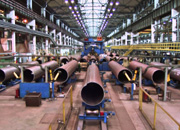 Threeway Steel is known as a professional supplier engaged in designing, manufacturing and distribution of a wide range of steel products with the headquarter located the central part of China – Hunan and six associated factories throughout China.
Threeway Steel is known as a professional supplier engaged in designing, manufacturing and distribution of a wide range of steel products with the headquarter located the central part of China – Hunan and six associated factories throughout China.
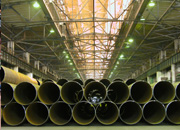 Threeway Steel is known as a professional supplier engaged in designing, manufacturing and distribution of a wide range of steel products with the headquarter located the central part of China – Hunan and six associated factories throughout China.
Threeway Steel is known as a professional supplier engaged in designing, manufacturing and distribution of a wide range of steel products with the headquarter located the central part of China – Hunan and six associated factories throughout China.
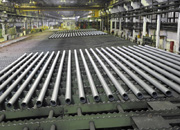 Threeway Steel is known as a professional supplier engaged in designing, manufacturing and distribution of a wide range of steel products with the headquarter located the central part of China – Hunan and six associated factories throughout China.
Threeway Steel is known as a professional supplier engaged in designing, manufacturing and distribution of a wide range of steel products with the headquarter located the central part of China – Hunan and six associated factories throughout China.
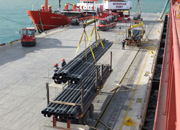 Threeway Steel is known as a professional supplier engaged in designing, manufacturing and distribution of a wide range of steel products with the headquarter located the central part of China – Hunan and six associated factories throughout China.
Threeway Steel is known as a professional supplier engaged in designing, manufacturing and distribution of a wide range of steel products with the headquarter located the central part of China – Hunan and six associated factories throughout China.

